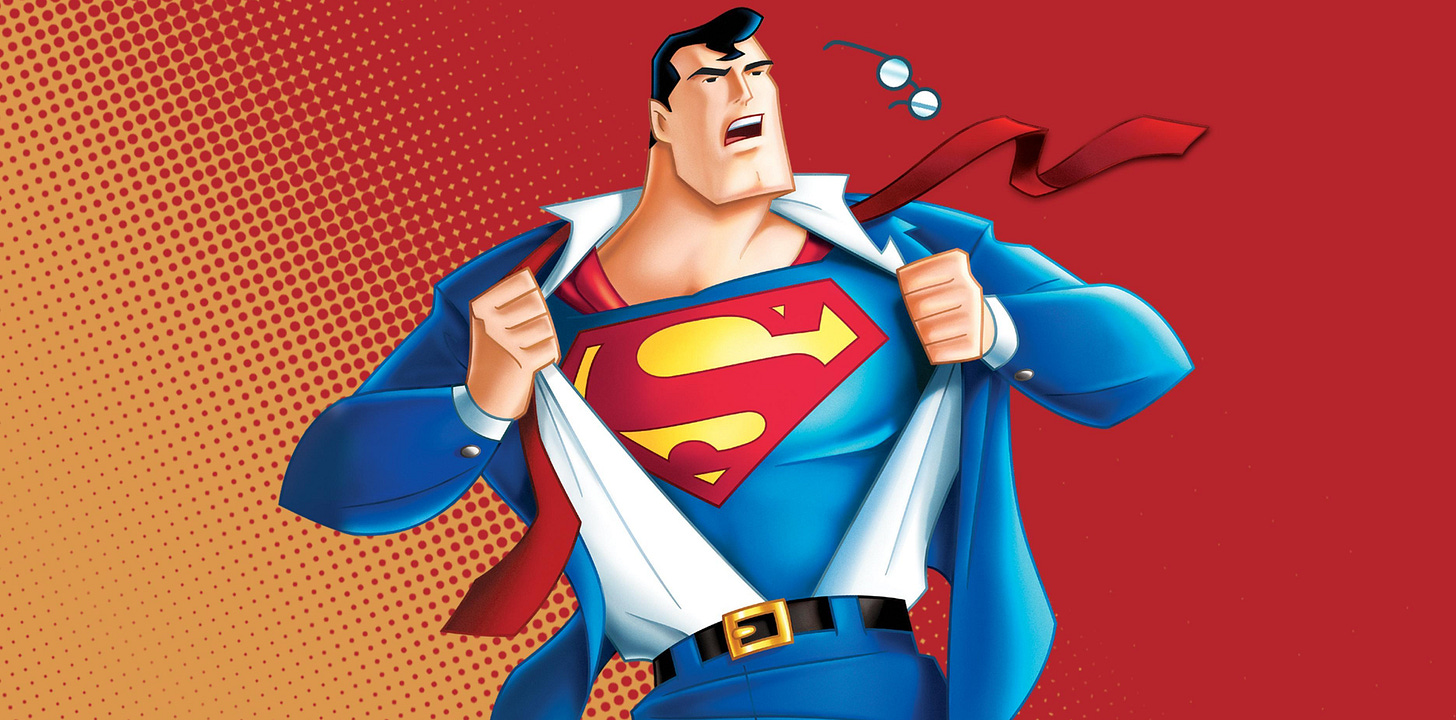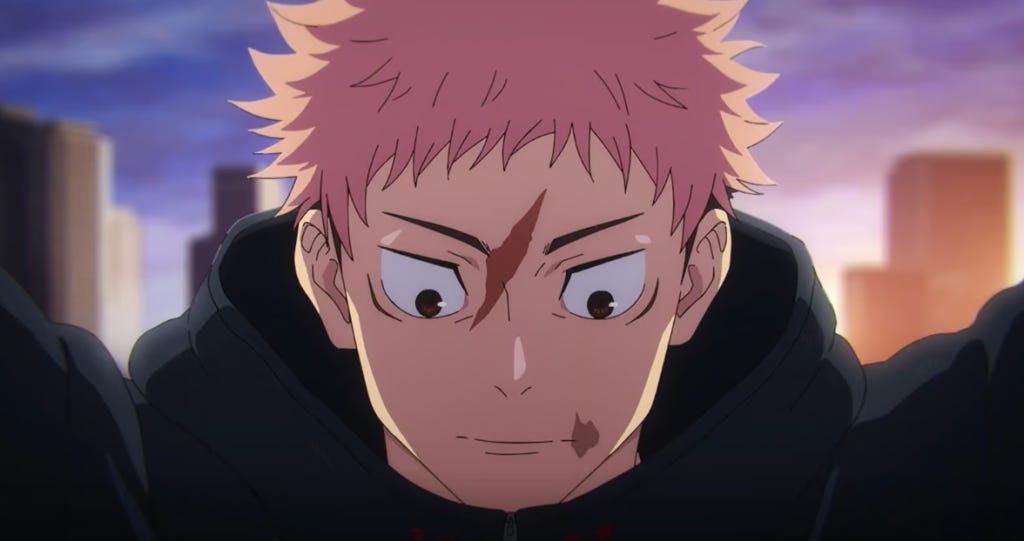In the past few years, I have seen a trend online of admiration for, and identification with, characters that were not intended to be admired or identified with. These characters are morally ambiguous at best, and openly evil at worst. Tommy Shelby from Peaky Blinders, Billy Butcher from The Boys, Joker from the 2019 movie, and Patrick Bateman from American Psycho are popular examples of this. And while we can all appreciate well-written villains or anti-heroes, I find it troubling that so many people personally identify with them.
Of course, there is some pushback. The Starman memes became popular sometime last year, and have recently seen a resurgence with the teaser for James Gunn’s Superman movie. But the fact still remains that this is a pushback against the popular culture.
Derogatorily labeled as ‘boy scout heroes’, characters that are unambiguously good are often seen as bland or boring. I disagree. This is the case, sometimes, but it doesn’t have to be. The characters I am talking about in this post are not perfect. They have their flaws and struggles, their internal conflict. But they all try their best to be good, and to be kind.
This post is a sequel to my post on Pure Evil Villains, to check that out if this interests you.
Superman (DC Comics)
Superman vs the Elite, is in my opinion, one of the best animated superhero films ever. Superman faces a new group of superheroes, ones who are willing to kill criminals. This movie explores whether Superman’s morals are old-fashioned, and whether or not he should be willing to cross that line. Superman seemingly breaks down and brutally kills them, causing mass destruction and shocking the world. He reveals that the entire thing was a trick, orchestrated to show people just how terrifying someone with his power could be without his ideals.
Death Battle put it best when they broke down Superman’s character:
Superman's is the story of a god trying to live amongst men. It's not about if he loses a fight, but whether about he's doing the right thing. That's why he stands for truth, justice, and freedom. That's why he doesn't wear a mask. That's why he's called the Superman.
I’m really excited for James Gunn’s new Superman movie. It looks like he really understands what the character is about in a way that Zack Snyder never did.
Yuji Itadori (Jujutsu Kaisen)
Despite him being the protagonist of JJK, many people don’t like Yuji. I’ve often heard him called him bland and boring compared to more popular characters like Gojo and Toji. I couldn't agree less.
Yuji is cursed by his grandfather’s dying wishes, which propel him to help people. He resolves to die in order to stop Sukuna. And although his ideals grow and change, what never changes is his unwavering resolve. He is willing to face down literal manifestations of evil, monsters who can level cities, with noting but his fists. He may not be as overpowered as Gojo, but that just makes his resolve even more impressive — the resolve to risk his life time and time again fighting creatures who heavily outclass him. In the end, he is able to find compassion even for his greatest enemy, and offers him a second chance when most would simply have killed him.
Adolin Kholin (The Stormlight Archive)
Adolin is one of my favorite characters in Brandon Sanderson’s The Stormlight Archive. He works excellently as a foil to multiple characters, and I love how supportive he is of characters like Renarin, Kaladin and Shallan with their trauma and mental health issues. He goes through his own arc as well, struggling with feelings of uselessness as a simple swordsman in a world of Knights Radiant, as well as his guilt in abandoning his city.
Without giving spoilers for Wind and Truth, all I can tell you is this; his character arc wraps up excellently. He works through his feeling of guilt and helplessness, and finds his own path without becoming a Radiant. By the time the second half of the series rolls around, he will be as much of a legend as the Blackthorn.
Captain America (Marvel Cinematic Universe)
I think Cap’s arc in the MCU is seriously underrated. He starts out as a naive, well-meaning soldier who sees the world in black and white and never questions his orders. After being brought into the modern world, he is rudderless and struggles to adapt to a world that is completely different from the one he used to know. He tries to cope by throwing himself into service, but can no longer be the perfect soldier — not when he uncovers the corruption of the organization he is serving. He eventually comes to see authority as something that impedes his autonomy and his ability to help others. And he continues to do so — even after Infinity War, when he loses everyone he loves for a second time, he still helps other people with their trauma.
In the end, he learns to put himself and his own happiness first, travelling back to the past to live the life he could have had.
Conclusion
I don’t think these type of characters should be paired up with pure evil villains. It works occasionally, such as with JJK, but what you often get are morally simplistic stories without real character growth. It’s much more interesting to see these characters question their ideals and grow as a result.
These four characters are a refutation of the claim that so-called boy scout heroes are boring. They are kind. They help people without ulterior motives. That does not make them bland or flawless Mary Sues. They have distinct character arcs that resolve in satisfying and interesting ways.
Antiheroes have a certain attractiveness: they appeal to our darker sides, our fantasies of letting go and acting on our darkest impulses. That makes them, in a certain sense, relatable. True heroes, on the other hand, are the ones who inspire. The ones who show us what we can be. The ones who motivate us to be better.










Wholeheartedly agreed. Antiheroes have worth, but the value of a pure hero can't be understated.
A personal favourite of mine has to be Prince Ashitaka from Princess Mononoke. He is goodness personified - he's humble, he's just, he's noble, he's utterly selfless, he treats everyone (even the social outcasts in Eboshi's town) with the utmost respect, he knows that he is doomed to a slow and horrible death, yet instead of resigning himself or becoming bitter he uses the time he has left to protect others.
10/10 guy, literally nothing wrong with him, if even 1% of real people were as good as Ashitaka this would be a very different world.
I agree, I think we have seen too many morally gray heroes recently and sometimes we just need unambiguously good heroes to make the world feel a better place.
One of my favorite Yuji moments was him saying that he doesn't want to start killing (people) because then killing would become an option and once that happens it would slowly become the go-to. I'm paraphrasing here of course, but that's the gist. And that line always makes me think of Superman, and why heroes like him can't start killing